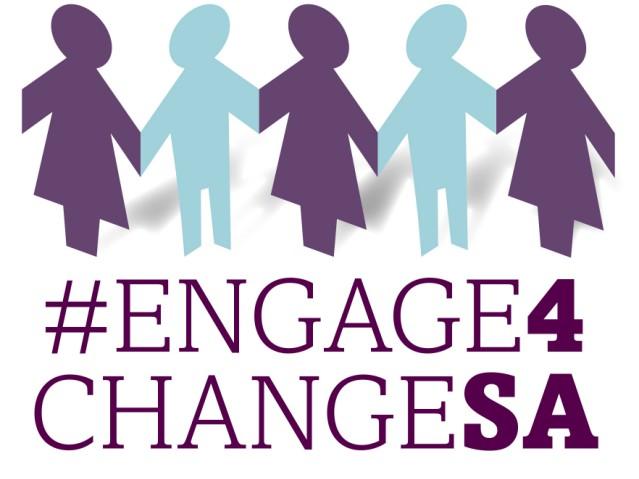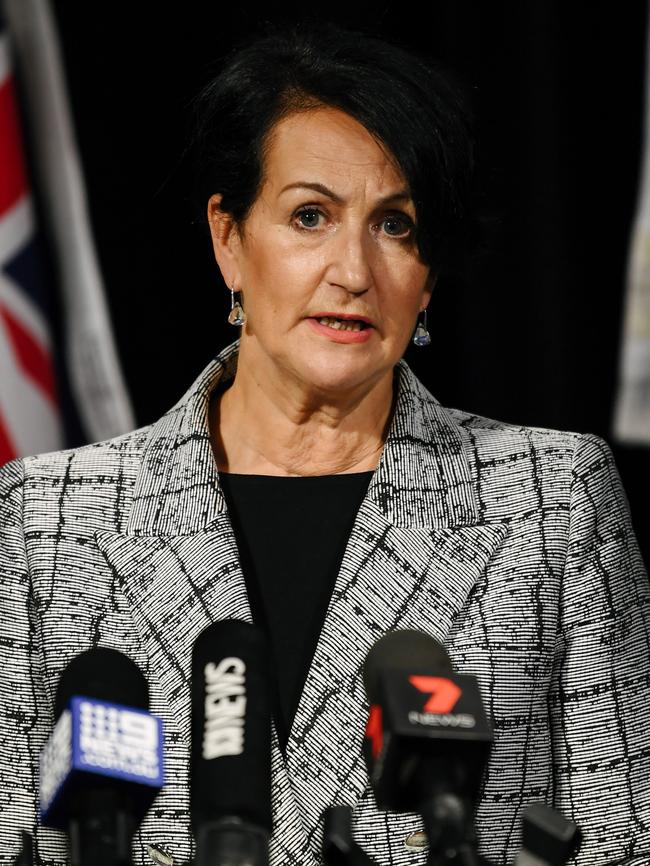Attorney-General Vickie Chapman promises tougher penalties for abusers who breach court orders
TAKING “invasive” photos of a partner without consent or locking them out of their home would constitute abuse under proposed new laws — which would also double the penalty for breaching court orders to protect victims of domestic violence.

- Domestic violence in SA: Our horrific abuse toll
- Interstate court orders protecting family violence victims now recognised in SA
TAKING “invasive” photos of a partner without consent or locking them out of their home would constitute abuse under a suite of proposed changes to address the “grim reality” of domestic violence.
Deputy Premier Vickie Chapman also announced the State Government would double the penalty for breaching a court order meant to protect victims. This would include forced marriage in an expanded definition of domestic abuse.
It also would create an offence of non-fatal strangulation, which was necessary because “hands are the weapon of choice” for many abusers, Ms Chapman said.

She hoped to present legislation to MPs by the end of the month, to consider during the parliamentary winter break.
The changes were needed to tackle the “grim reality” of family violence in SA, she said.
Some of the initiatives were pledged by the Liberal Party ahead of the state election while others have been added to the suite of responses following community feedback.
Welfare workers in SA say strangulation is often used as a form of control. At present it is prosecuted as attempted murder but a new offence would increase the chances of successful prosecution. A penalty is being decided.
More than 800 people have been charged with a similar offence since it was introduced in Queensland in 2016.


Ms Chapman also committed to allowing footage captured by police officers to be used as evidence in family violence-related trials.
SA Police and the Chief Magistrate support changing the Evidence Act to allow video taken by police body-worn cameras, of incidents or interviews with victims, to be shown in court.
SA Police responded to 29,814 domestic violence call outs in 2016-17, which is a 60 per cent rise over two years.
There were 23 murders in SA last year, of which 10 were related to domestic violence, but police say there have been no such deaths in the past six months.
The new laws will include forced marriage in the definition of abuse after two cases were revealed in SA.
“Young women in this state have either been sent overseas for forced marriage or have been identified since they’ve been here as being the victim of a forced marriage,” Ms Chapman said. “It’s in our community and it has to be addressed.”

In Opposition, Ms Chapman raised concerns about whether court-issued Intervention Orders – used to keep abusers away from a victim’s home or workplace – were “worth the paper they’re written on” and pledged tougher penalties ahead of the election.
In April, The Advertiser revealed that abusers were breaching court orders at least nine times a day.
The current maximum penalty for a breach – two years’ jail – would be doubled under the Government’s plans.
A breach can include harassing or stalking in person or by phone, assault, damaging property or going to a prohibited home or workplace.
Frontline workers say the data on breaches represent only the tip of the iceberg because they do not include cases which are dismissed, withdrawn or never reach the point of charges being laid.
Many victims are too afraid to report breaches or do not believe authorities will act.
The Liberals pledged ahead of the March election to “ensure” breaches were acted on”promptly”, but Ms Chapman conceded it was up to police to “investigate and refer for prosecution”.
In April The Advertiser revealed that a new Public Protection Branch within SA Police would respond to complex social problems facing the state, including domestic violence.
At least 35 South Australians have died as a result of family violence since mid-2010 — but there have been no such deaths reported to SA Police in the past six months.
South Australia is one of few jurisdictions where Intervention Orders remain in place indefinitely.
Interstate, they can expire in as little as 12 months, requiring victims to go through a traumatic reapplication process.
A perpetrator can apply to an SA court to have an order revoked after the first 12 months.
People protected by the order have a chance to argue against revocation.
Court orders issued to protect victims of domestic violence are automatically recognised and enforced across state and territory borders.
The proposed changes
EXPANDING the definition of abuse to include forced marriage, taking “invasive” photos of a partner without consent or locking them out of their home.
CREATING a new offence of non-fatal strangulation, based on models used interstate. The penalty still being decided.
ALLOWING footage captured by police officers’ body-worn cameras, of violent incidents or interviews with victims, to be used as evidence in domestic violence trials.
DOUBLING the maximum penalty for repeated breaches of Intervention Orders from two years’ jail to four.
For help, phone 1800 RESPECT, or the SA Domestic Violence Crisis Line on 1800 800 098.

